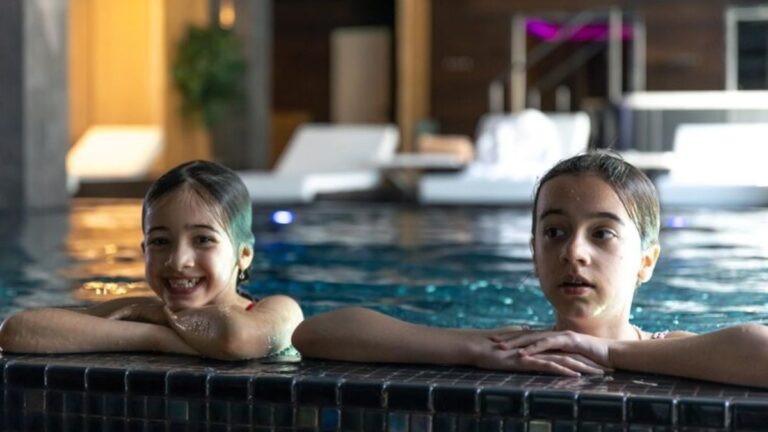Introduction
Learn about the importance of swimming beyond a pastime. Teaching children how to swim on not just helps them enjoy the water but also equips them with vital life skills. Enrolling kids in swimming classes at an age offers learning in water safety and swimming techniques setting a foundation for their aquatic journey. Let’s explore how early childhood swimming education can positively impact aspects of a child’s growth and development. Continue reading this article before searching for toddler swim lessons near me.
Lifelong Safety and Skills
Drowning is a risk for children, making swimming lessons crucial in preventing accidents. Studies show that teaching kids to swim at an age significantly reduces the chances of drowning incidents among those 1-4 years. Learning to swim goes beyond mastering strokes; it teaches children survival skills like calling for help and understanding the importance of never swimming. These lessons instill awareness, creating an environment as kids mature and partake in various water activities.
Physical and Cognitive Development
Starting swimming at a stage can boost physical development in children. Swimming is great for building strength, coordination and keeping your heart healthy. The resistance of the water gives you an effective workout that targets your whole body helping to tone muscles and increase flexibility in your joints. What’s more is the natural coordination needed for swimming like the movements of your arms and legs. Helps to activate pathways in your brain and supports its development. Moreover swimming can boost skills in kids. The coordinated movements and brain stimulation involved in swimming not just aid in brain development but also enhance motor skills. As per studies by Harvard Health these early physical activities play a role in improving a child’s performance and focus. Children who swim on a basis often display problem-solving abilities, memory retention and a knack for grasping new ideas quickly.
Water Confidence
Developing a sense of comfort and confidence in water at an age is key for children to feel at ease and reduce any fears or anxieties they may have. Being comfortable in settings not enhances the enjoyment of recreational swimming but also prepares them for activities like diving and snorkeling. Early exposure to water helps children grasp concepts like buoyancy, movement and control which can help alleviate any apprehensions they may have. Through lessons that focus on exploration, floating techniques and safe pool entry and exit children can transform from nervous beginners into skilled swimmers who are confident in their abilities to tackle more challenging aquatic tasks as they grow older.
The Importance of Structured Programs
Swim programs go beyond teaching basic swimming skills; they offer a holistic learning experience. Professional swim instructors follow a curriculum that ensures skill development within an encouraging setting. These organized lessons are vital as they ensure that children learn the techniques and safety measures from the start laying a strong foundation for all their future swimming pursuits. Such programs typically have levels that progressively build upon acquired skills to keep children engaged and motivated as they advance in their swimming journey.
Choosing the Right Swim School
It’s also important to keep track of how each child’s doing over time to see where they might need help and personalized attention. When it comes to picking a school for your child, make sure to find one with certified teachers, an organized curriculum and positive feedback from other parents. The reputation of the school and the qualifications of its instructors are signs of the quality of education your child will receive. Look for facilities that prioritize safety, cleanliness and provide an atmosphere for learners. Up-to-date facilities with safety precautions like lifeguards and kid friendly spaces play a role in creating a learning environment. Your child’s comfort and trust in their instructors and surroundings can greatly impact their learning journey.
Conclusion
In summary, early swimming lessons for kids offer benefits like improving health, cognitive skills, water confidence and social abilities. By picking the swim program, you’re helping your child develop life skills that go beyond just swimming. The path to becoming a swimmer begins with that dip in the pool and leads to a lifetime of enjoyment and safety around water.
Learning to swim at an age offers benefits from reducing the risk of drowning to improving social interactions. Investing in your child’s swimming abilities on not promotes their well-being but also ensures their safety in the future.
